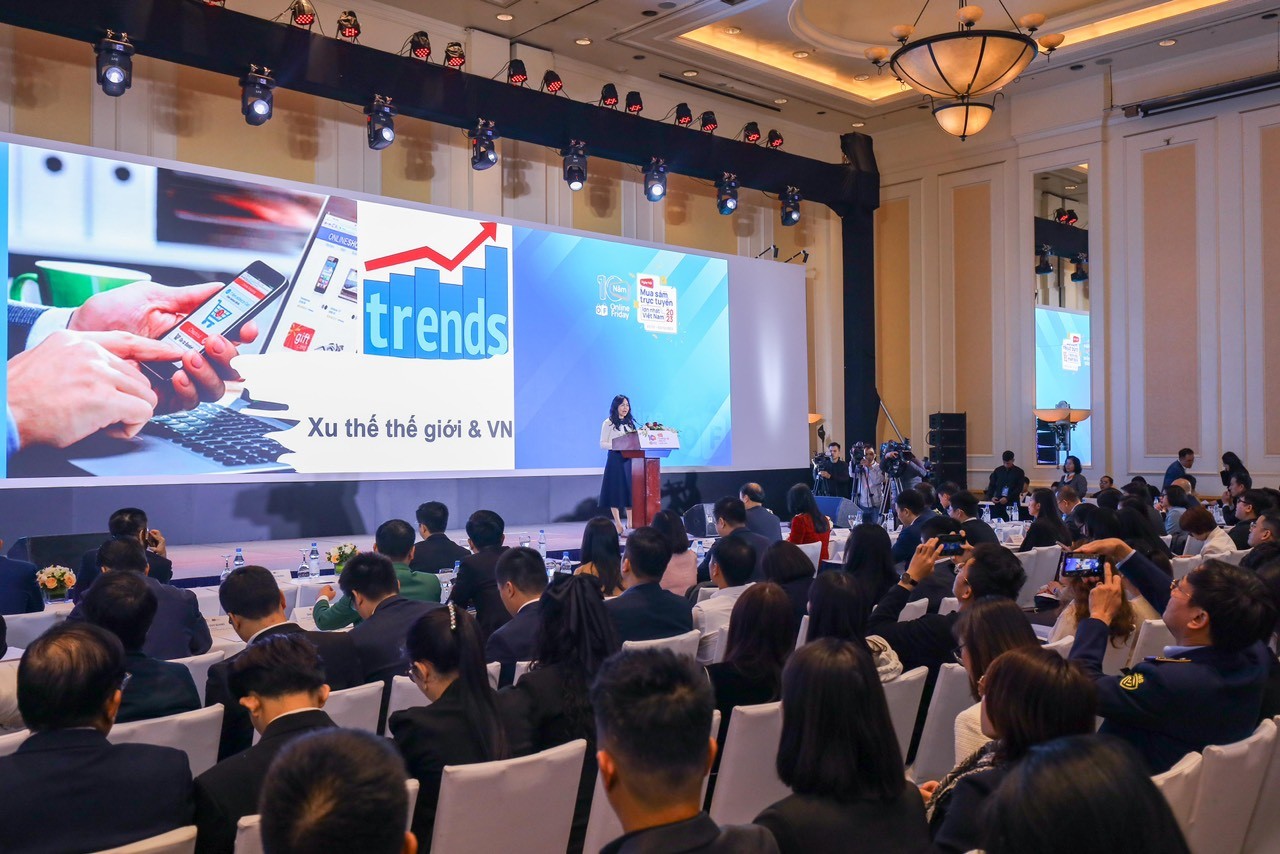 |
| Overview of the Vietnam E-commerce Development Conference, December 1 in Hanoi . (Photo: Van An) |
On December 1, the Department of E-commerce and Digital Economy (Ministry of Industry and Trade) organized the Vietnam E-commerce Development Conference with the theme "Sustainable E-commerce Development". The event was held within the framework of the National E-commerce Week and Vietnam Online Shopping Day - Online Friday 10.
Over the past 10 years, the Ministry of Industry and Trade has organized the Program with the mission of accompanying the Vietnamese e-commerce market to solve difficulties and challenges in people's awareness and trust in online shopping; difficulties in supporting technology infrastructure... thereby contributing to promoting the rapid and strong development of the Vietnamese e-commerce market.
In addition to promotional and discount activities of businesses, the Conference is a meaningful activity that creates an environment for organizations and businesses to demonstrate the latest technologies and advanced e-commerce models, e-commerce promotion solutions for consumers to experience, build new e-commerce habits and skills.
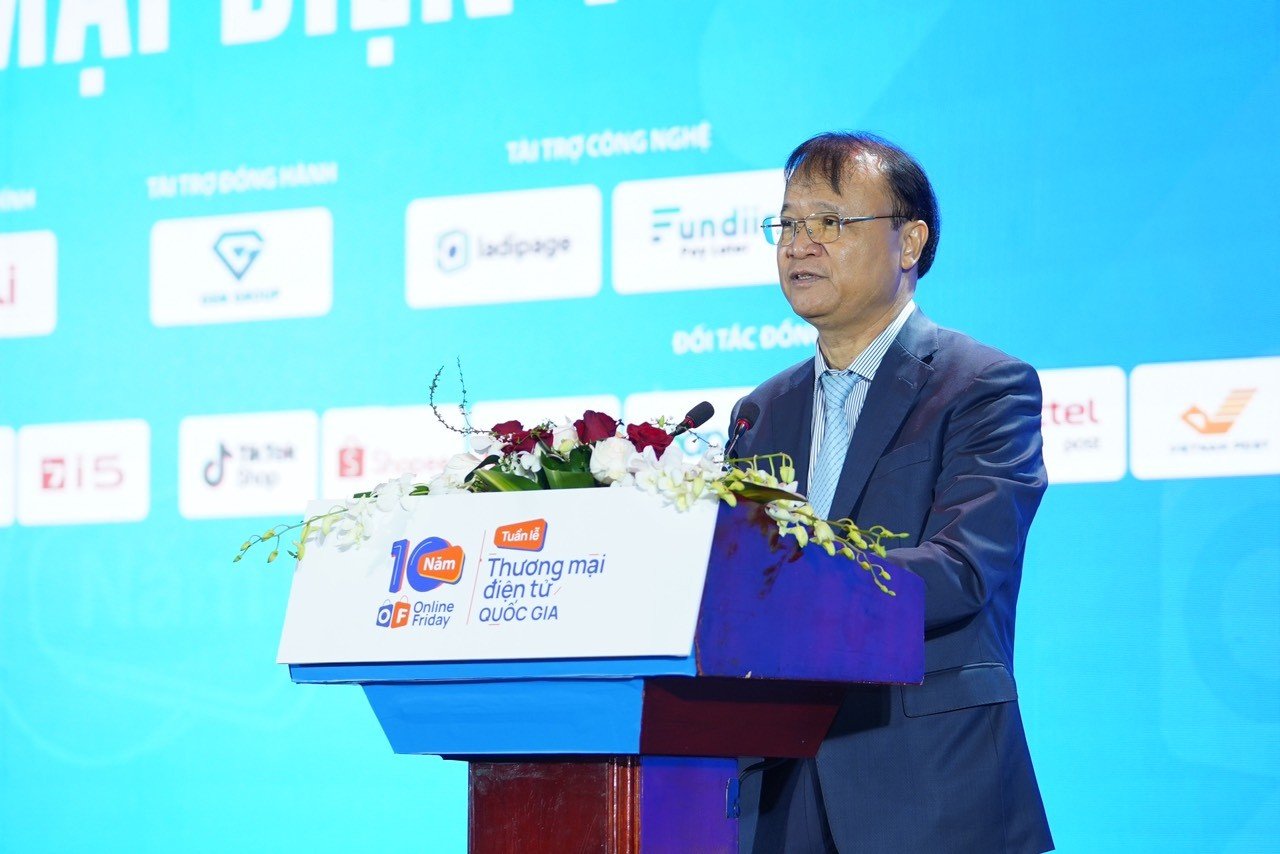 |
| Deputy Minister of Industry and Trade Do Thang Hai speaks at the Conference. (Photo: Van An) |
E-commerce is an important component of the digital economy.
Speaking at the conference, Deputy Minister of Industry and Trade Do Thang Hai said that Vietnam's e-commerce is going through a period of 10 years of brilliant development. From the days when the concept of "e-commerce" was still quite unfamiliar to consumers; the interface, display of products, services, and booths were still simple; the number of sellers applying e-commerce was not diverse and it took a lot of effort to get the first orders.
Now, Vietnam's e-commerce continuously records remarkable growth at 16-30%/year and is expected to reach 20.5 billion USD in 2023.
"This proves that e-commerce is increasingly asserting itself as an important component of the digital economy in Vietnam. Along with that, the e-commerce market in Vietnam has also formed secondary service supply systems for the market including: technology platform services supporting e-commerce transactions, marketing services, online marketing communications, delivery services... The connection and sharing of these service supply systems increasingly helps optimize the process of linking manufacturers with consumers", Deputy Minister Do Thang Hai emphasized.
Besides positive results, e-commerce also faces many difficulties and challenges such as: ensuring the origin of goods; ensuring safety and security of personal information; e-commerce logistics infrastructure has not yet met the growth rate of the market; consumer confidence in online transactions...
In order to gradually resolve difficulties and challenges in e-commerce, Deputy Minister Do Thang Hai suggested that in the next phase, the Online Friday Program should fulfill its mission of helping the Vietnamese e-commerce market develop sustainably - Strengthening the protection of consumer rights and entities in e-commerce activities.
The leaders of the Ministry of Industry and Trade also requested the Organizing Committee and experts to focus on sharing the overall orientation for sustainable e-commerce development in Vietnam in the next period. In addition, the contents focus on the current status of e-commerce development in Vietnam, the specific difficulties and challenges encountered in the process of protecting the rights of consumers and entities participating in e-commerce activities.
In addition, the Deputy Minister requested the State and businesses to jointly propose solutions to apply digital technology to promote the e-commerce development ecosystem, protect consumers and entities participating in online transactions.
For sustainable e-commerce development
According to Ms. Le Hoang Oanh, Director of the Department of E-commerce and Digital Economy, for e-commerce to develop sustainably, it is necessary to ensure 5 factors: positive and stable growth; balance and harmony of interests of stakeholders; green development; trust; human resources.
Vietnam’s e-commerce market is currently rated as having a growth rate in the Top 10 worldwide and is expected to continue to rise in the next 2 years. The stable and positive growth factor can be said to be a bright spot for Vietnam’s e-commerce, but at the same time, it also puts great pressure to maintain the above speed in the coming time.
The second factor needed to ensure sustainable e-commerce development is the balance and harmony of interests of stakeholders from manufacturing enterprises, e-commerce platforms, delivery and payment service units, consumers, etc., gradually narrowing the gap, moving towards balancing development between regions and ensuring regional linkages in e-commerce development.
In addition, e-commerce is also a field that can contribute a lot to saving energy and minimizing toxic waste to the environment. By optimizing business processes and transportation processes, e-commerce will reduce a large amount of vehicle emissions into the environment, while saving wasted energy.
According to the leader of the Department of E-commerce and Digital Economy, sustainable e-commerce development cannot lack the element of trust. In the past 10 years, although the Vietnamese e-commerce market has grown very rapidly in quantity, the biggest reason that consumers still consider as obstacles when buying online is still "poor quality compared to advertising", "not trusting the seller", "difficult to verify the quality of goods".
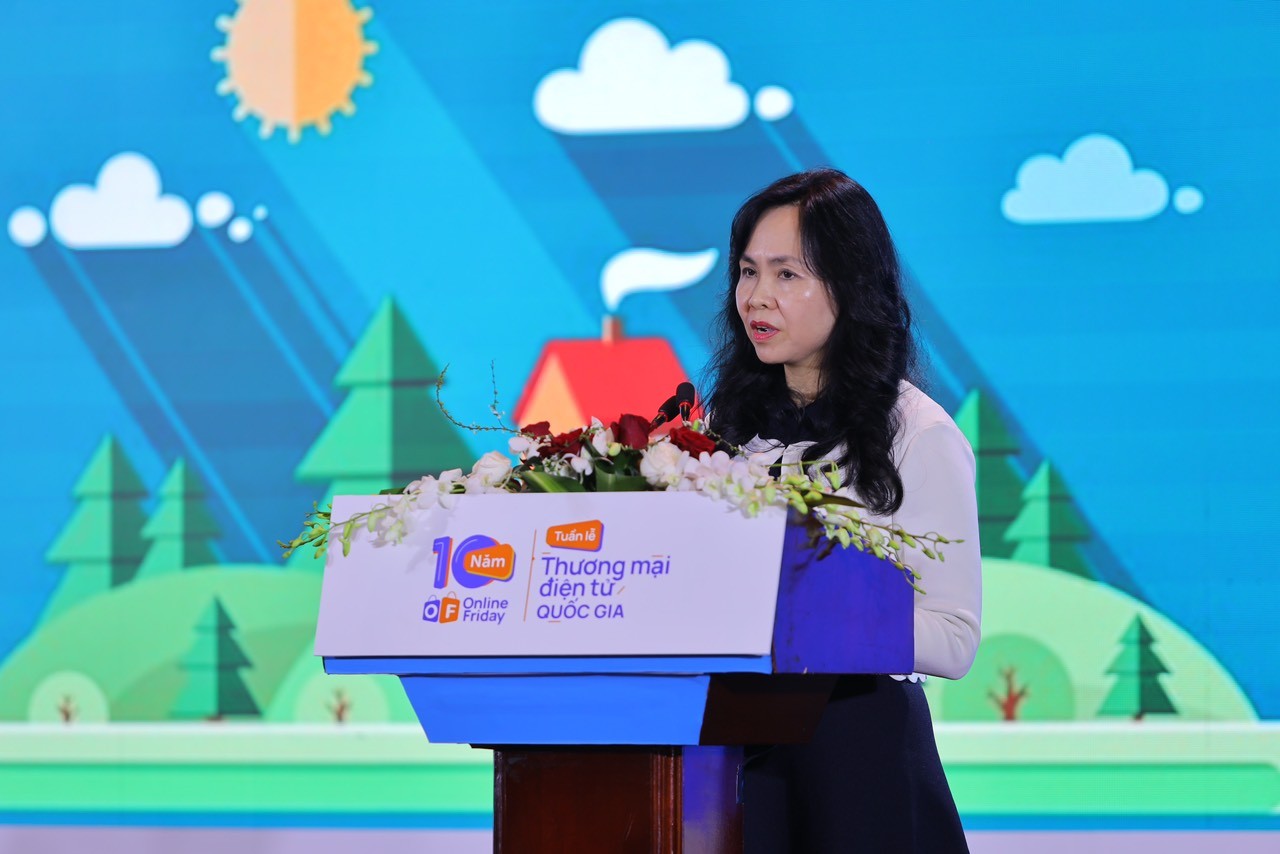 |
| According to Ms. Le Hoang Oanh, Director of the Department of E-commerce and Digital Economy, for e-commerce to develop sustainably, it is necessary to ensure 5 factors. (Photo: Van An) |
From the perspective of state management agencies, a representative of the Department of E-commerce and Digital Economy said that to change this situation, it is necessary to continue to improve competition laws in the e-commerce environment; improve legal regulations on consumer rights protection; regularly inspect, check and monitor to promptly detect and handle violations and develop business rules and standards in the online environment.
The final factor to ensure sustainable e-commerce development is human resources. “E-commerce is a new and rapidly growing field, but the scale of human resources has not kept up with the development needs. It is estimated that only 30% of human resources at companies providing e-commerce solutions are currently formally trained. Thus, up to 70% of e-commerce personnel at these units are recruited from other training majors such as commerce, business, information technology…”, Ms. Oanh emphasized.
Delegates attending the event listened to the orientation of the policy to protect consumer rights in the online environment from the leaders of the National Competition Commission; about the current situation of difficulties and challenges when operating in the field of e-commerce in Vietnam from the perspective of local management agencies, banks, payment organizations, e-commerce platforms, delivery businesses and e-commerce associations...
Within the framework of the Conference, the Discussion session with the theme "Digital ecosystem solutions to enhance the protection of consumer rights and entities participating in e-commerce activities in Vietnam" attracted much attention and discussion from many businesses attending.
From the sharing and recommendations of agencies, organizations, associations and enterprises to the Ministry of Industry and Trade at the Conference, the Program continues to have more opportunities to improve the current legal framework and policies on protecting consumer rights in the online environment. From there, it can advise the Government leaders on appropriate directions and plans to promote e-commerce development, continuing to make e-commerce play a leading role in contributing to the overall growth of the digital economy.
Source










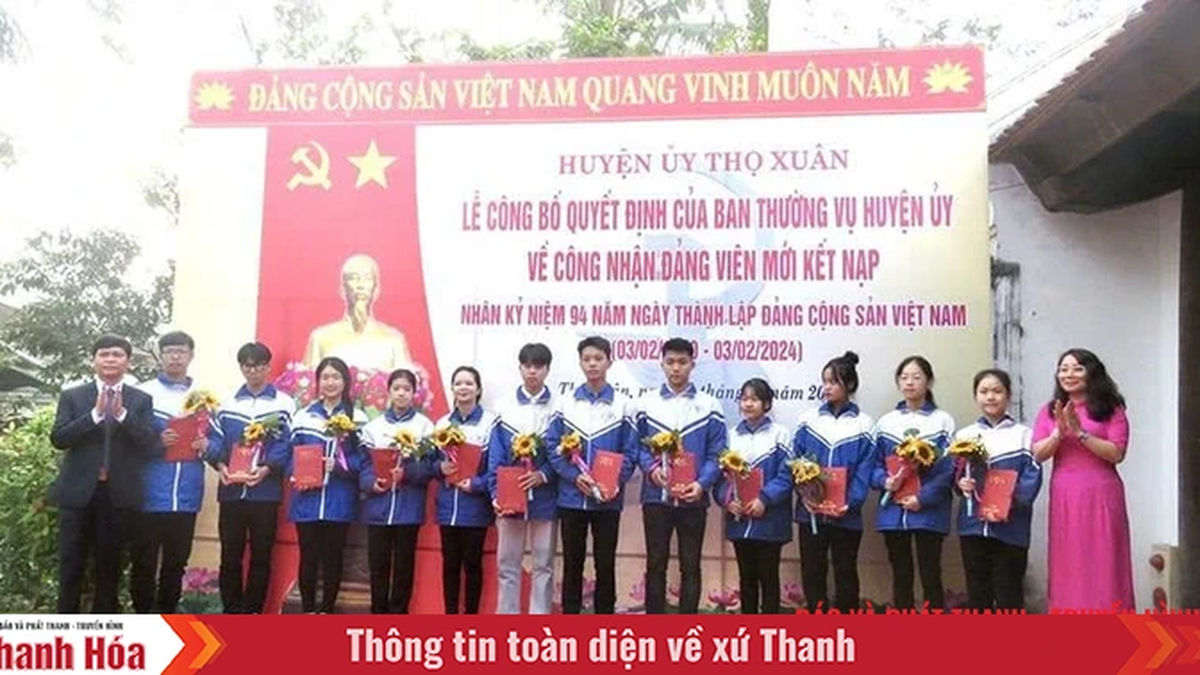
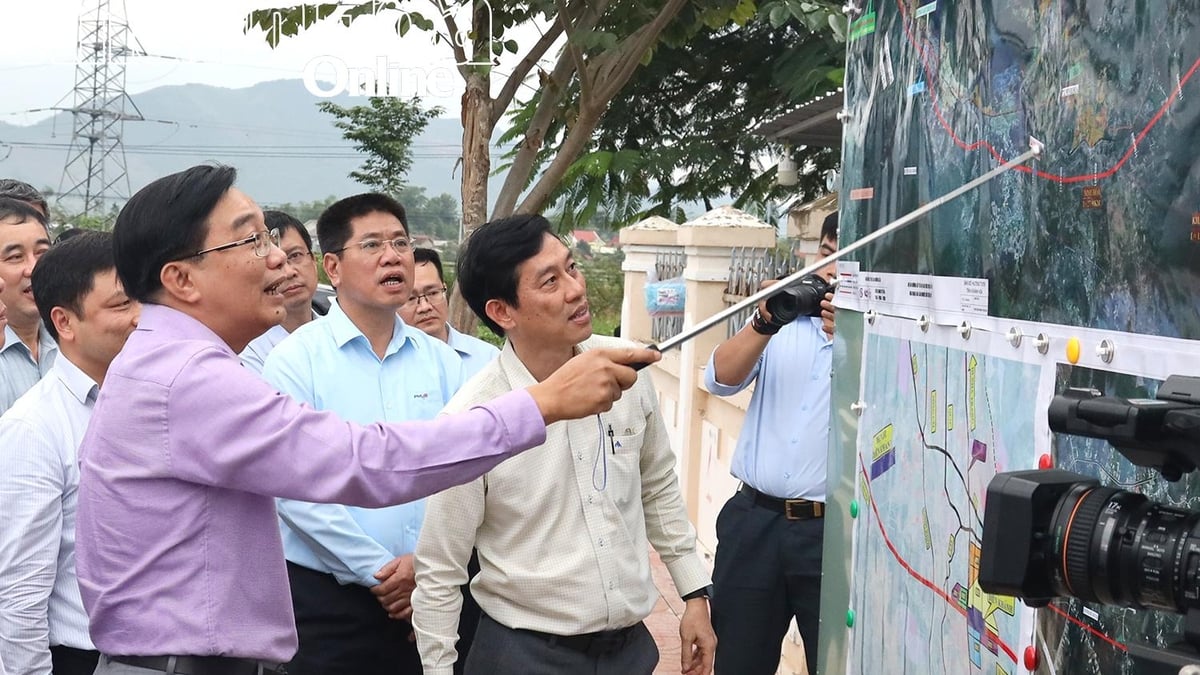
















![[Photo] National Assembly Chairman attends the seminar "Building and operating an international financial center and recommendations for Vietnam"](https://vphoto.vietnam.vn/thumb/1200x675/vietnam/resource/IMAGE/2025/7/28/76393436936e457db31ec84433289f72)








































































Comment (0)